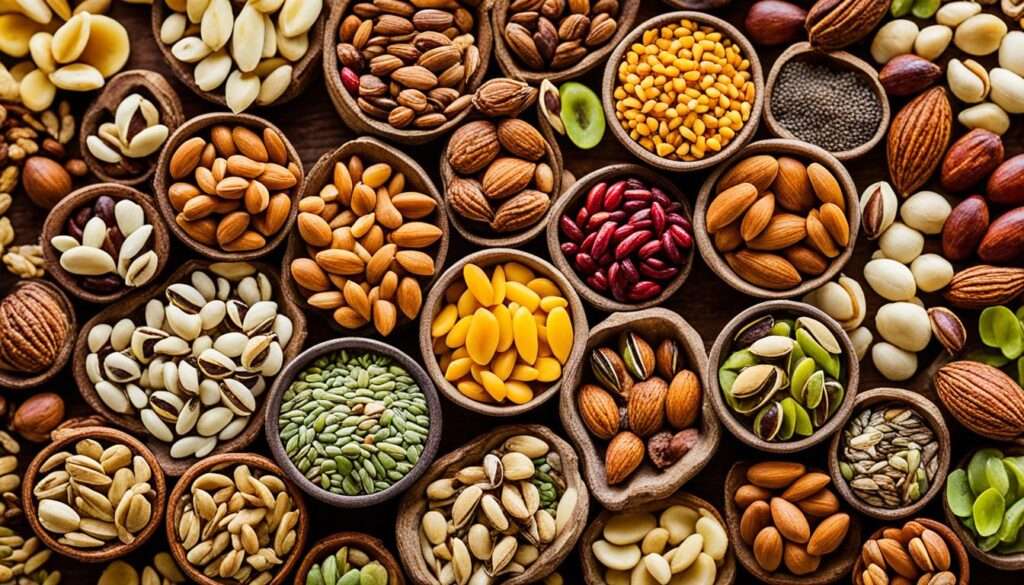Your diet plays a crucial role in maintaining digestive health. The foods you consume can either support or disrupt your digestive system, influencing everything from nutrient absorption to bowel regularity. Understanding how your diet can affect digestive health helps in making informed choices to promote a healthy gut and prevent digestive issues. This blog will explore the impact of diet on general digestive health, highlight key foods to watch out for, and provide specific guidance for conditions like diverticulitis.
Understanding How Diet Can Affect Digestive Health
The digestive system is responsible for breaking down food, absorbing nutrients, and eliminating waste. What you eat directly impacts these processes, affecting your overall digestive health.
1. Role of the Digestive System
The digestive system includes the mouth, esophagus, stomach, intestines, and other organs involved in digestion. It performs several key functions:
- Breaking Down Food: Digestion starts in the mouth and continues in the stomach and intestines, where food is broken down into nutrients.
- Absorbing Nutrients: The small intestine absorbs nutrients from digested food, which are then transported to cells throughout the body.
- Eliminating Waste: The large intestine absorbs water and forms stool, which is eliminated through the rectum.
2. Impact of Diet on Digestion
Your diet can either enhance or hinder these digestive processes, affecting overall health and well-being.
- Nutrient Absorption: A balanced diet supports nutrient absorption, while poor dietary choices can lead to deficiencies.
- Gut Health: Certain foods support a healthy gut microbiome, while others can disrupt the balance of bacteria in the gut.
- Bowel Regularity: Adequate fiber intake promotes regular bowel movements, while low-fiber diets can cause constipation.

Foods to Watch Out For
Certain foods can negatively impact digestive health, leading to issues like bloating, constipation, and inflammation. Understanding which foods to watch out for helps in making better dietary choices.
1. High-Fat Foods
High-fat foods can slow down digestion and cause discomfort, leading to symptoms like bloating and constipation.
- Examples: Fried foods, fatty cuts of meat, and processed snacks are high in unhealthy fats. These foods can delay stomach emptying and increase the risk of digestive issues.
- Healthier Alternatives: Choose lean proteins like chicken, turkey, and fish. Use healthy fats from sources like avocados, nuts, and olive oil in moderation.
2. Sugary Foods and Beverages
Sugary foods and beverages can disrupt the balance of gut bacteria and contribute to digestive issues.
- Examples: Candies, sugary drinks, and desserts contain high levels of sugar that can feed harmful bacteria in the gut, leading to inflammation and discomfort.
- Healthier Choices: Opt for natural sweeteners like honey or fruit. Limit the intake of sodas, energy drinks, and sweets to support a healthy gut microbiome.
3. Refined Grains
Refined grains lack fiber and essential nutrients, contributing to constipation and other digestive problems.
- Examples: White bread, white rice, and pastries are refined grains that can slow down digestion and cause constipation. These foods are often stripped of their fiber and nutrients during processing.
- Healthier Alternatives: Replace refined grains with whole grains like brown rice, whole wheat bread, and quinoa. These options provide more fiber and support healthy digestion.
4. Dairy Products
Dairy products can cause digestive issues for some people, leading to symptoms like bloating, gas, and diarrhea.
- Examples: Whole milk, cream, cheese, and butter can be problematic, especially for those with lactose intolerance. These products can cause symptoms due to their lactose content.
- Alternatives: Choose lactose-free or plant-based alternatives like almond milk, soy milk, and dairy-free cheeses if you are sensitive to lactose.
5. Artificial Sweeteners
Artificial sweeteners can disrupt gut bacteria and cause digestive discomfort in some individuals.
- Examples: Products containing aspartame, saccharin, and sucralose may cause symptoms like bloating, gas, and diarrhea. These sweeteners can alter the balance of gut bacteria and affect digestion.
- Natural Sweeteners: Use natural sweeteners like honey, maple syrup, or stevia as alternatives to artificial sweeteners.
6. Carbonated Beverages
Carbonated beverages can introduce excess gas into the digestive system, leading to bloating and discomfort.
- Examples: Sodas, sparkling water, and energy drinks contain carbonation that can cause gas and bloating. The bubbles in these drinks can expand in the stomach and intestines, leading to discomfort.
- Alternatives: Drink still water, herbal teas, or natural fruit juices to avoid excess gas and support hydration.
7. Spicy Foods
Spicy foods can irritate the digestive tract and cause symptoms like heartburn, indigestion, and stomach pain.
- Examples: Foods containing hot peppers, chili powder, and spicy sauces can trigger symptoms in sensitive individuals. Spicy foods can irritate the stomach lining and esophagus.
- Milder Options: Choose milder seasonings and herbs like basil, oregano, and thyme to flavor your food without causing irritation.
Foods to Avoid with Diverticulitis
For individuals with diverticulitis, certain foods can exacerbate symptoms and should be avoided. Diverticulitis occurs when small pouches in the colon become inflamed or infected, leading to pain and digestive issues.
1. High-Fat Foods
High-fat foods can worsen inflammation and digestive discomfort in individuals with diverticulitis.
- Examples: Fried foods, fatty cuts of meat, and processed snacks can increase inflammation and exacerbate symptoms. These foods are difficult to digest and can irritate the digestive tract.
2. Red Meat
Red meat can be difficult to digest and may contribute to inflammation, leading to flare-ups of diverticulitis.
- Examples: Beef, lamb, and pork should be limited. Choose lean proteins like chicken, turkey, and fish to reduce the risk of symptoms.
3. Dairy Products
Dairy products can cause digestive issues for some people with diverticulitis, leading to bloating and discomfort.
- Examples: Whole milk, cream, cheese, and butter may need to be avoided if they cause symptoms. Opt for low-fat or lactose-free alternatives if you tolerate them better.
4. Refined Grains
Refined grains lack fiber and can contribute to constipation, increasing the risk of diverticulitis flare-ups.
- Examples: White bread, white rice, and pastries are refined grains that can cause digestive issues. Whole grains like brown rice, whole wheat bread, and oats are better options.
5. Certain Fruits and Vegetables
Some fruits and vegetables with seeds or skins can irritate the digestive tract and should be avoided during a diverticulitis flare-up.
- Examples: Tomatoes, strawberries, raspberries, corn, and bell peppers can be problematic. Peel fruits and vegetables and avoid seeds when possible to reduce irritation.
6. Nuts and Seeds
Nuts and seeds can be difficult to digest and may irritate diverticula, leading to symptoms of diverticulitis.
- Examples: Avoid almonds, sunflower seeds, and popcorn, especially during an active flare-up. Some people may tolerate small amounts if they chew thoroughly.
7. Sugary Foods
Sugary foods can contribute to inflammation and digestive issues, worsening symptoms of diverticulitis.
- Examples: Sweets, candies, and sugary drinks should be limited. Opt for natural sweeteners like honey or fruit if needed.
For more detailed information on foods to avoid with diverticulitis, visit this comprehensive guide on foods to avoid with diverticulitis.
Tips for Improving Digestive Health
In addition to avoiding certain foods, adopting healthy eating practices supports overall digestive health.
1. Increase Fiber Intake
A high-fiber diet supports healthy digestion and prevents constipation, reducing the risk of digestive issues.
- High-Fiber Foods: Include whole grains, fruits, vegetables, and legumes in your diet. Aim for at least 25-30 grams of fiber daily to support bowel regularity.
- Gradual Increase: Increase fiber intake gradually to avoid gas and bloating. Drink plenty of water to help the fiber work effectively.
2. Stay Hydrated
Proper hydration is essential for maintaining digestive health and preventing constipation.
- Daily Water Intake: Aim for at least 8-10 glasses of water daily. Adjust your intake based on activity level, climate, and overall health.
- Hydrating Foods: Include hydrating foods like cucumbers, watermelon, and oranges in your diet to boost fluid intake.
3. Eat Regular, Balanced Meals
Eating regular, balanced meals supports healthy digestion and prevents digestive discomfort.
- Meal Frequency: Eat smaller, frequent meals throughout the day instead of three large meals. This approach keeps your digestive system active and prevents overloading it.
- Balanced Nutrition: Include a mix of carbohydrates, proteins, and fats in each meal to provide essential nutrients and support digestion.
4. Avoid Late-Night Eating
Eating late at night can disrupt digestion and lead to symptoms like heartburn and indigestion.
- Timing: Avoid eating large meals or snacks close to bedtime. Allow at least 2-3 hours between your last meal and going to bed to give your digestive system time to process the food.
5. Practice Mindful Eating
Mindful eating helps you make better food choices and supports healthy digestion.
- Slow Down: Take your time to eat and chew food thoroughly. Eating slowly allows your digestive system to process food more effectively and reduces the risk of overeating.
- Listen to Your Body: Pay attention to hunger and fullness cues. Eat when you’re hungry and stop when you’re satisfied to avoid overloading your digestive system.
6. Exercise Regularly
Regular physical activity supports digestion and helps maintain a healthy gut.
- Exercise Routine: Engage in regular exercise like walking, running, or swimming to promote healthy digestion and reduce the risk of constipation.
- Strength Training: Include strength training exercises to improve muscle tone and support overall fitness.
When to Seek Medical Help
Knowing when to seek medical help for digestive issues ensures timely intervention and effective treatment.
Persistent Symptoms
Consult a healthcare provider if you experience persistent symptoms like abdominal pain, changes in bowel habits, or bloating. These symptoms may indicate underlying conditions that require medical evaluation.
Severe Symptoms
Seek immediate medical attention for severe symptoms like intense abdominal pain, high fever, or significant weight loss. These symptoms could signal serious conditions like diverticulitis or gastrointestinal infections.
Regular Check-Ups
Schedule regular check-ups to monitor your digestive health and address any concerns early. Discuss any changes in symptoms or dietary needs with your healthcare provider for ongoing management.
Conclusion
Your diet can affect digestive health significantly, influencing everything from bowel regularity to gut microbiome balance. By avoiding certain foods, making informed dietary choices, and adopting healthy eating practices, you can support your digestive system and prevent issues like bloating, constipation, and inflammation. Whether managing general digestive health or specific conditions like diverticulitis, a well-planned diet is essential for maintaining overall well-being.
For more detailed information on foods to avoid with diverticulitis, visit this comprehensive guide on foods to avoid with diverticulitis.









